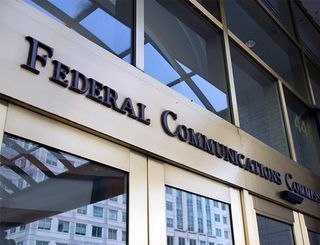FCC Approves Good Faith Retrans Review Item

The FCC has voted, unanimously according to a source there, to issue its rulemaking proposal revisiting its definition of good faith retransmission consent negotiations.
The item is in response to a congressional directive and looks at what should be included in a totality of circumstances test that goes beyond the per se violations already enumerated—although commenters are hoping the FCC will update/clarify some of those as well.
The item basically asks lots of questions rather than coming to any tentative conclusions about what should be included in totality of circumstances or be made per se violations.
But the FCC has already gotten a lot of industry input, particularly from cable and satellite operators.
For example, the American Television Alliance, which includes those cable and satellite operators, wants the FCC to declare blackouts, channel and program net bundling, third-party negotiations, withholding online content and more to be not in good faith.
Broadcasters say that the system, generally, is in good shape and that consumers should be more worried about escalating cable network prices and customer service issues.
The FCC NPRM mirrors many of the ATVA questions, including whether an MVPD demanding online distribution rights or a broadcaster denying them falls under the totality of circumstances test, whether bundling TV stations with affilated programming or third party negotiations are bad faith, and a raft of other issues, mostly raised by cable and satellite operators seeking retrans reforms.
Broadcasting & Cable Newsletter
The smarter way to stay on top of broadcasting and cable industry. Sign up below
The NPRM also says that, while most of the bad faith practices have been attributed by commenters--not broadcast commenters obviously--to TV station, good faith goes both ways. The FCC said that whatevever it decides is bad faith for one side is bad faith for the other. Though it does ask for comment on whether that should be the case, or whether there are some practices that are only bad faith on one side.
While the NPRM focuses on the totality of circumstances, it invites more comment on adding to the current list of nine per se violations.
Contributing editor John Eggerton has been an editor and/or writer on media regulation, legislation and policy for over four decades, including covering the FCC, FTC, Congress, the major media trade associations, and the federal courts. In addition to Multichannel News and Broadcasting + Cable, his work has appeared in Radio World, TV Technology, TV Fax, This Week in Consumer Electronics, Variety and the Encyclopedia Britannica.

